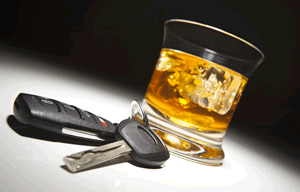Who will show up in court when I file bankruptcy?
If you file Chapter 7 or Chapter 13 bankruptcy you will have to appear in court at a mandatory hearing called the 341 Meeting or Meeting of the creditors. This meeting, however, is not a contentious court room hearing where you will be grilled by a prosecuting attorney, but simply a meeting where the trustee reviews the your conduct, property, liabilities, financial condition and any other matters pertaining to the bankruptcy and your right to discharge debts. Attendees for the Meeting of the Creditors include the bankruptcy filer (you), the trustee and potentially the creditors.
Although creditors have the legal right to attend the 341 Meeting and they are automatically notified by the court about your bankruptcy, creditors generally choose not to attend the meeting. If a creditor does attend it is generally because they have questions about your intentions regarding your property, they believe you have hidden assets or income, or they would like to question the accuracy of your bankruptcy petition and schedules.
Consider, however, even if the creditor does not attend the 341 Hearing they retain the right to object to the discharge of debts or your Chapter 13 plan. For instance, if you accumulate debts too soon prior to filing bankruptcy or you have committed bankruptcy fraud, it's likely a creditor will object to the discharge of debt.
Scheduling the Meeting of the Creditors
If you have filed Chapter 7 bankruptcy the Meeting of the Creditors will generally be scheduled least 21 days but no more than 40 days after the day you file your Chapter 7 bankruptcy case. Judges do not attend the meeting, and the meeting is generally held in a federal building (not necessarily a courtroom). The meeting generally lasts ten to fifteen minutes.
Preparing for the Meeting of the Creditors
If you have hired a bankruptcy lawyer they will tell you what you should bring to the meeting, but generally you should bring the following:
- Photo I.D.
- Proof of your Social Security number
- Mortgage documents
- Property deeds
- Bank Statements
- Payroll stubs
- Tax returns
- Car titles
What happens at the Meeting of the Creditors
At the Meeting of the Creditors you will meet with the trustee of your case. Also in attendance will be your attorney, if you hired one, and creditors, if they choose to appear. Your trustee will question you first. The goal of the questions is to determine the accuracy of your bankruptcy petition and bankruptcy schedules as well as whether or not you have made any payments to creditors or transferred any money or property before your bankruptcy that they need to retrieve and redistribute.
There are a variety of questions the trustee might ask. For instance, they might ask why you are filing bankruptcy, whether you have listed all of your property on your schedules, how you determined the property value of the items listed, and whether you owe child support or alimony.
Related Pages
Latest Question
Will my DUI case be dropped if the officer forgets to read Miranda Rights?
Understanding what can happen with your DUI case if the police officer forgets to read you the Miranda Rights
Category: DUI and DWI


